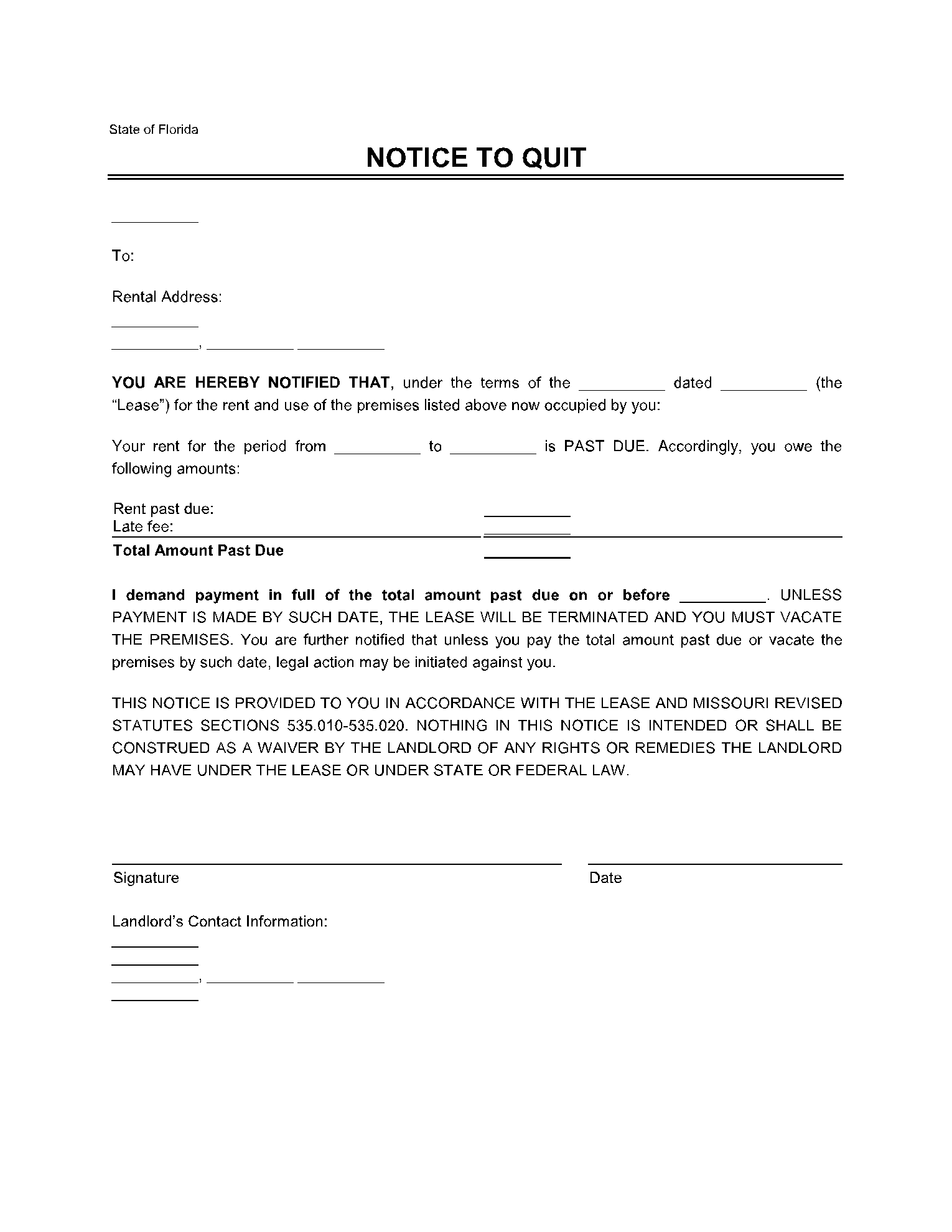Florida eviction notice forms refers to the forms the landlords send to tenants when they fail to pay the rent or comply with the lease agreement in any manner. A landlord can then choose to evict them by sending them an eviction notice, after which the tenant can either decide to move out or pay whatever rent they owe to the landlord.
Can My Landlord Evict Me with a Handwritten Notice in Florida?
Yes, a landlord can evict a tenant in Florida with a handwritten notice. There is no rule present that Florida eviction notice forms cannot be handwritten or that they strictly need to be typed. However, it involves rules regarding the contents of the Florida eviction notice. An eviction notice could be defective and not support an unlawful detainer (eviction) case if the notice does not contain the necessary details and information. Despite the technicalities, a Florida eviction notice can indeed be handwritten.
How Do I File an Eviction Notice in Florida?
Landlords issue eviction notices in Florida to give an ultimatum to the tenant that if they don’t pay up the rent within a certain date, they will have to vacate the property. In case the tenant ignores the notice and refuses to move out, the next step may involve filing an eviction lawsuit which requires a whole different set of paperwork. However, if all goes smoothly, then the tenant will leave after receiving the eviction notice. An eviction notice is filed at the district courthouse for the county where the rental property is located. However, if the tenant owes the landlord a lot of rent, and the latter wants a money judgment for the debt, then they might need to file in a superior court.
Each state has its court system and its financial cut off. Get in touch with the district court clerk. They can guide you for any doubts. Only a landlord can file eviction documents with the court. If the landlord cannot attend in person, they will need to hire an attorney. The eviction paperwork usually varies from one court to another. But, it requires certain details and paperwork everywhere, such as a complaint about eviction, summons, and court cover sheet.
What is a Hardship Stay?
A hardship stay refers to a law when the court allows the tenant to stay in the same rental property. Once the landlord receives a judgment for eviction, the tenant will receive a warrant for removal. The tenant will then have three business days from when they receive the warrant for removal to request a warrant hearing. In order to request a warrant hearing, one must visit the clerk’s office where the hearing took place. At the warrant hearing, the tenant can ask for a hardship stay of eviction. If the court grants a hardship, it will delay your eviction temporarily.
A tenant will be granted a hardship stay if the tenant has all the money that is due to the landlord and if they pay that money to the landlord or the court. To receive a hardship stay, the tenant must demonstrate some type of hardship to the Court. For example, it may be like having nowhere else to go or the presence of children in the home. A hardship stay is not always automatic. A judge maintains discretion in case of hardship stays. Also, they need to consider the needs of the landlord when exercising discretion.
Conclusion
Different states and courts have different rules about eviction notices. Landlords must be very careful about the eviction notice they choose. It is important that both tenants and landlords need to know the court proceedings. That will help to fight an eviction.
